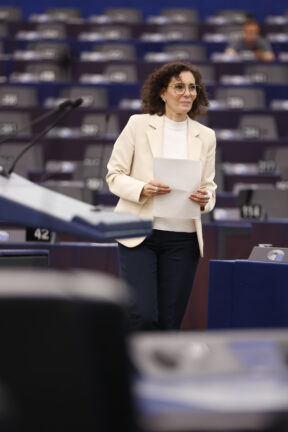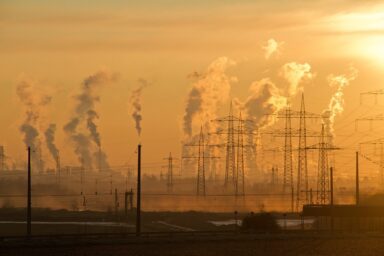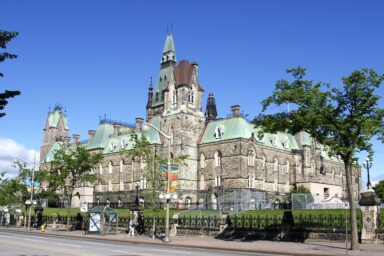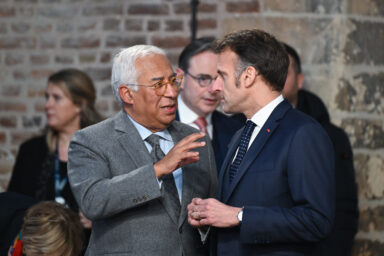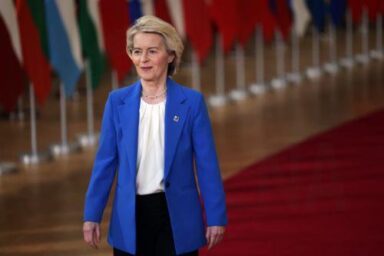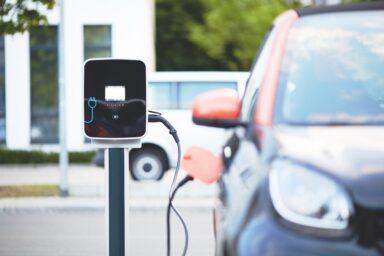As EU-US tensions and rivalry with China intensify, Europe is turning its attention to another potential big trade partner — India. Negotiators expect to finalise a free trade agreement with the world’s fourth largest economy by the end of the year. But MEPs urge cautiousness, pointing out mutual differences as well as India’s close ties with Russia.
“Europe and India are (…) converging by necessity.” Hadja Lahbib, the EU Commissioner for Equality, put it bluntly when speaking to the European Parliament this week. “Recent wars, great power rivalry, and fragile supply chains are forcing both to adapt. Europe is de-risking after Russia’s aggression. India seeks reliable partners without formal alignment,” she said, explaining why both parties choose now to pursue a free trade agreement.
“Together, we represent nearly a quarter of global GDP and population. Together, we can move the global needle.” — Hadja Lahbib, EU Commissioner for Equality
The commissioner outlined a new strategic agenda between the EU and India, which the parties first introduced a month ago with the goal of finalising negotiations by the end of the year. According to Ms Lahbib, the cooperation is to build on shared democratic values and mutual interests in security, sustainability, and technological innovation. She said the partnership aims to boost trade, clean energy, and digital cooperation. Reinforcing maritime and defence ties, as well as improving connectivity and skilled mobility are to turn political alignment into concrete action on global challenges.
India is indispensable. So is caution
The move to shore up ties with India met broad parliamentary support. “India is indispensable to Europe’s global reach and resilience,” said MEP David McAllister (EPP/DEU) on behalf of his faction. Yet he urged caution, warning that the EU must focus on delivering on its promises rather than making ambitious declarations. As a partner that values autonomy and selective cooperation over traditional alliances, India presents a “strategic litmus test” for the Union, the MEP said. Still, he insisted, pragmatic engagement could yield progress in three areas: trade and technology, connectivity and clean energy, and joint security efforts in the Indian Ocean.
Speaking for the Socialists, MEP Giannis Maniatis (S&D/GRC) highlighted India’s growing global clout. Its rapidly expanding economy is set to become the world’s third largest by 2030, he said. Like Mr McAllister, he projected plenary both optimistism and cautioun in his plenary speech. “India, of course, remains one of Russia’s key trading partners,” he warned, underscoring the need for a comprehensive European strategy that can elevate and balance all aspects of the partnership.
Mr Maniatis was not the only one focusing on India’s close ties to Russia. MEP Małgorzata Gosiewska (ECR/POL) pointed out on behalf of her group that, in 2022, India became a major importer of Russian oil, “thereby helping to finance Russia’s aggression against Ukraine”. “How can we talk about a joint security strategy with a state that maintains close relations with Russia?” she asked.
You might be interested
Focus on Russian oil
MEPs’ calls didn’t go unanswered. “Yes, India is an important importer of Russian oil; unjust participation in the Zapad military exercise, albeit at a much lower level than originally planned — our concerns have been directly communicated to the Indian authorities,” Commissioner Lahbib told MEPs.
Yet optimism prevailed. “The Commission is convinced that engagement is the right way forward. Prime Minister Modi, in a recent call with our president, reaffirmed that India opposes Russia’s war of aggression against Ukraine and that now is the moment to deepen cooperation with Europe,” she said.
